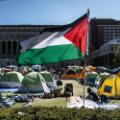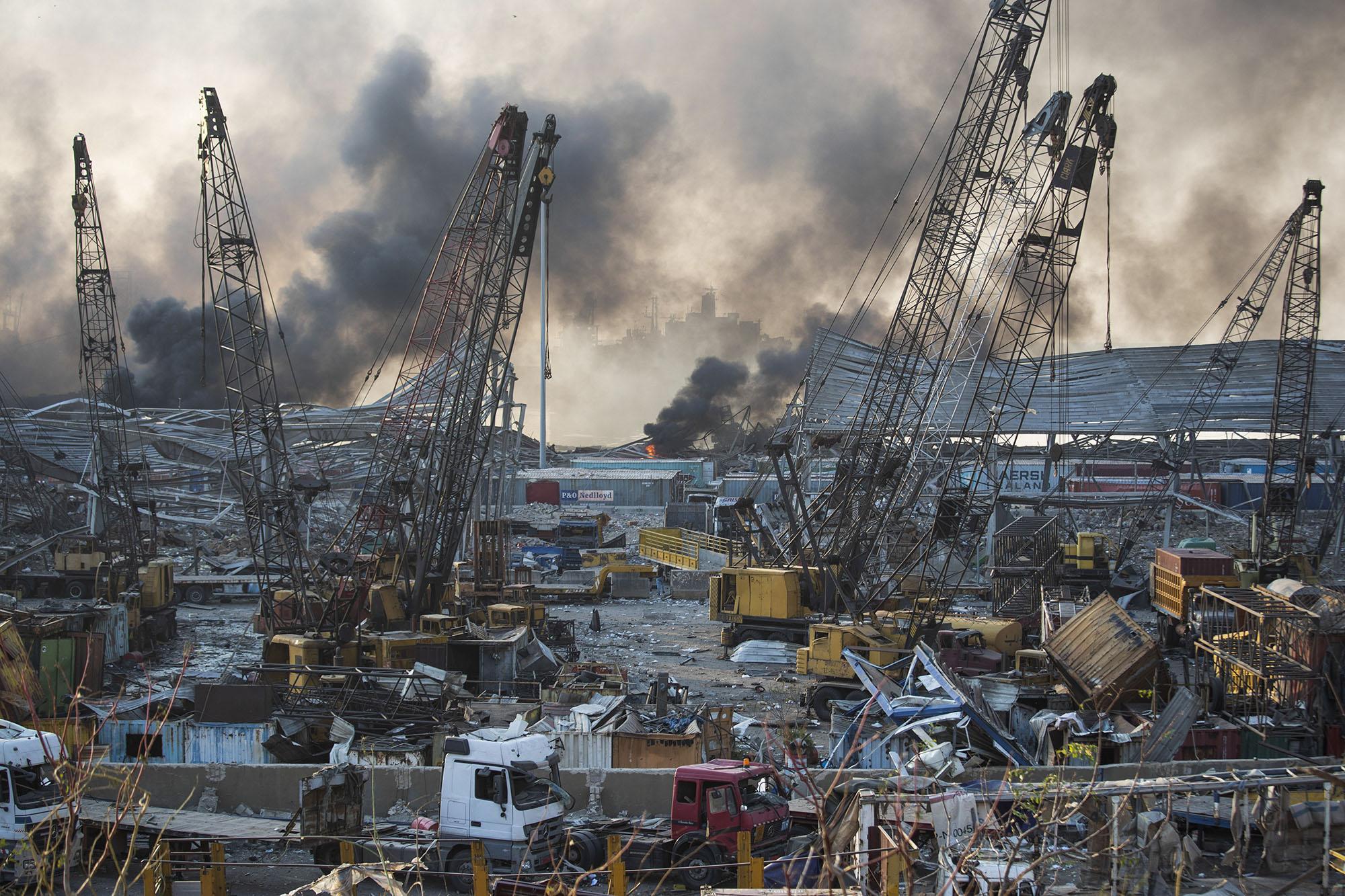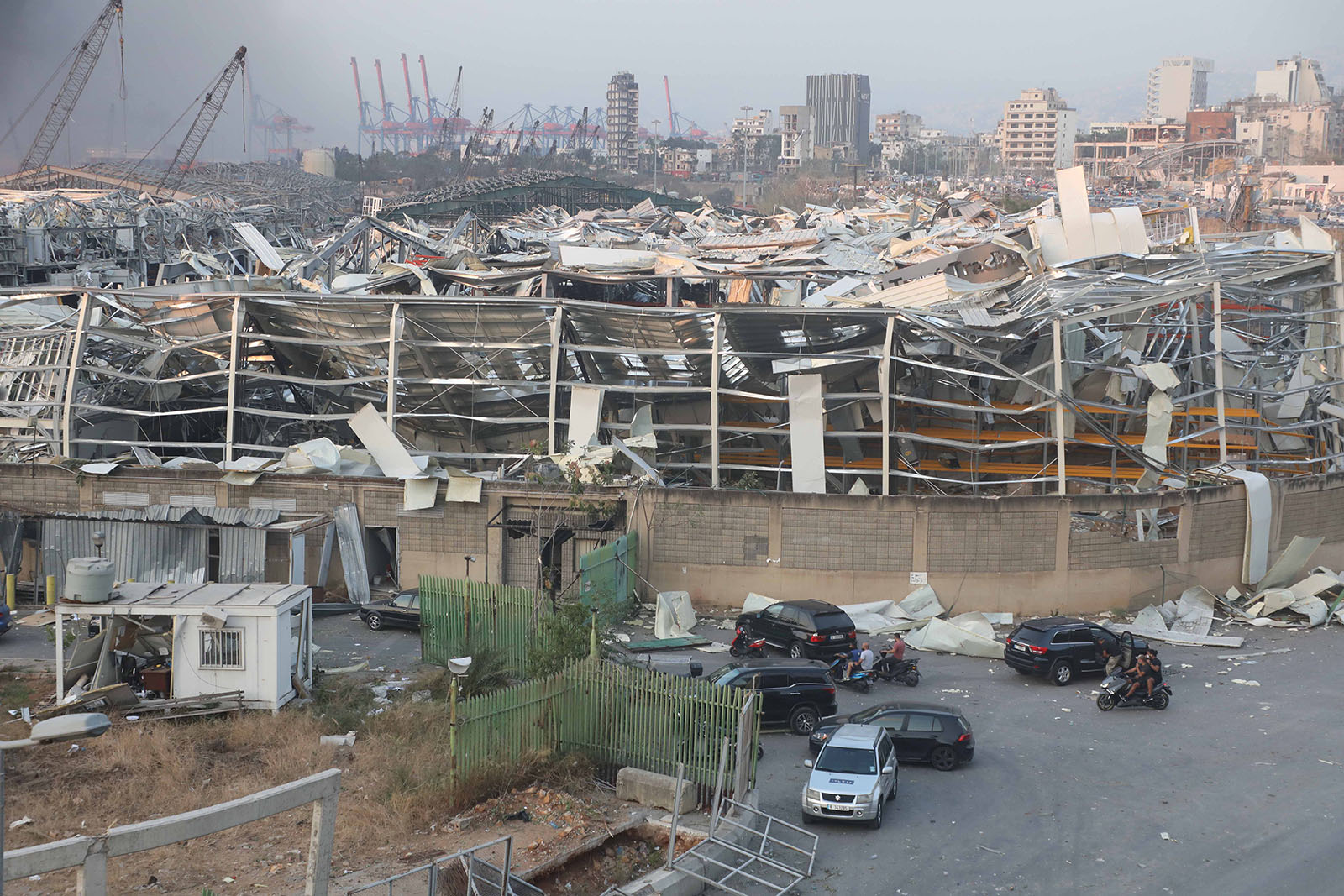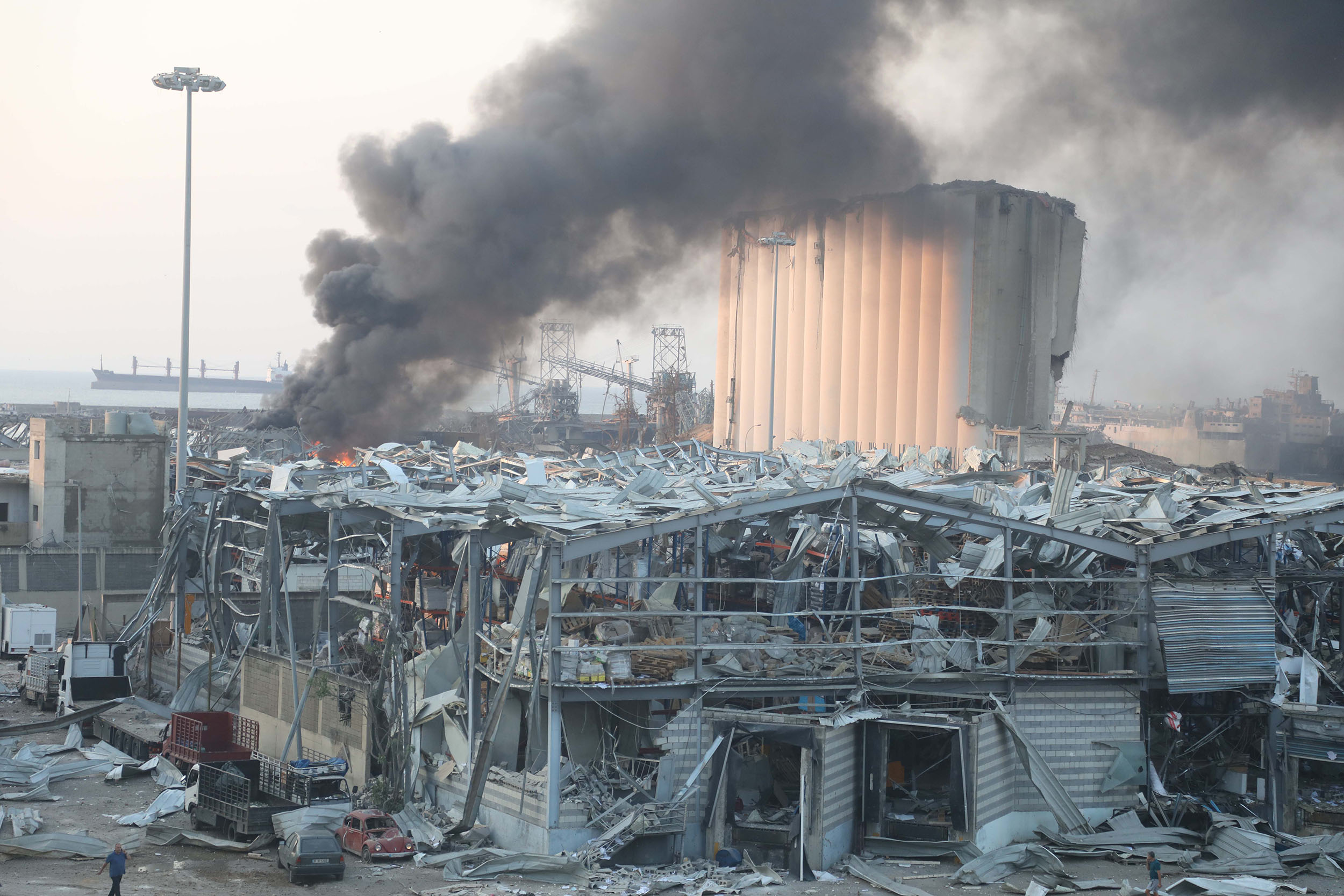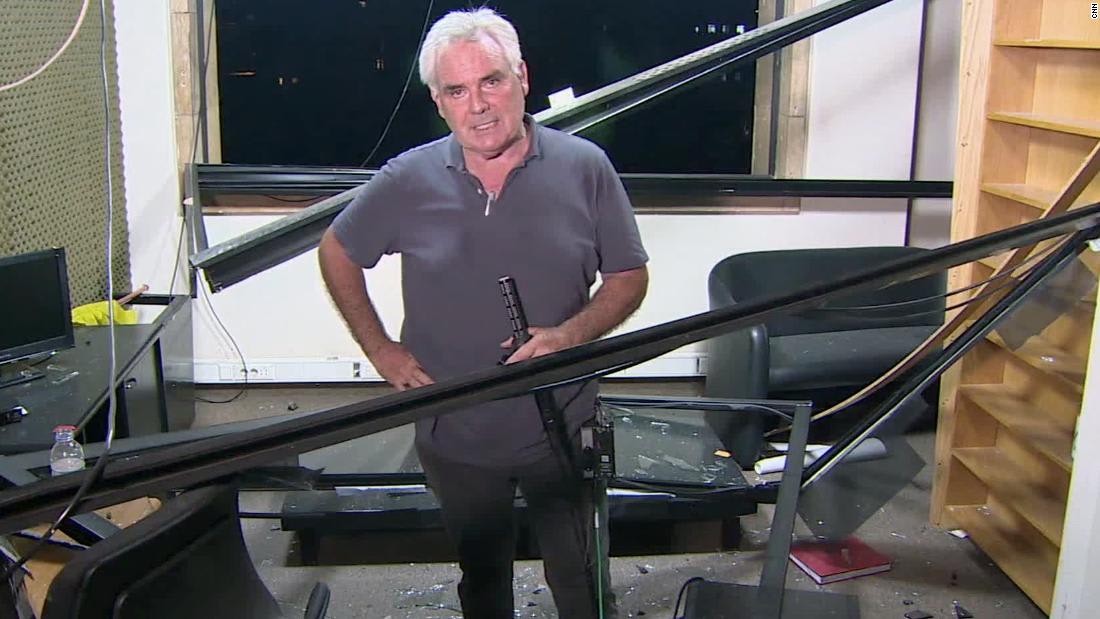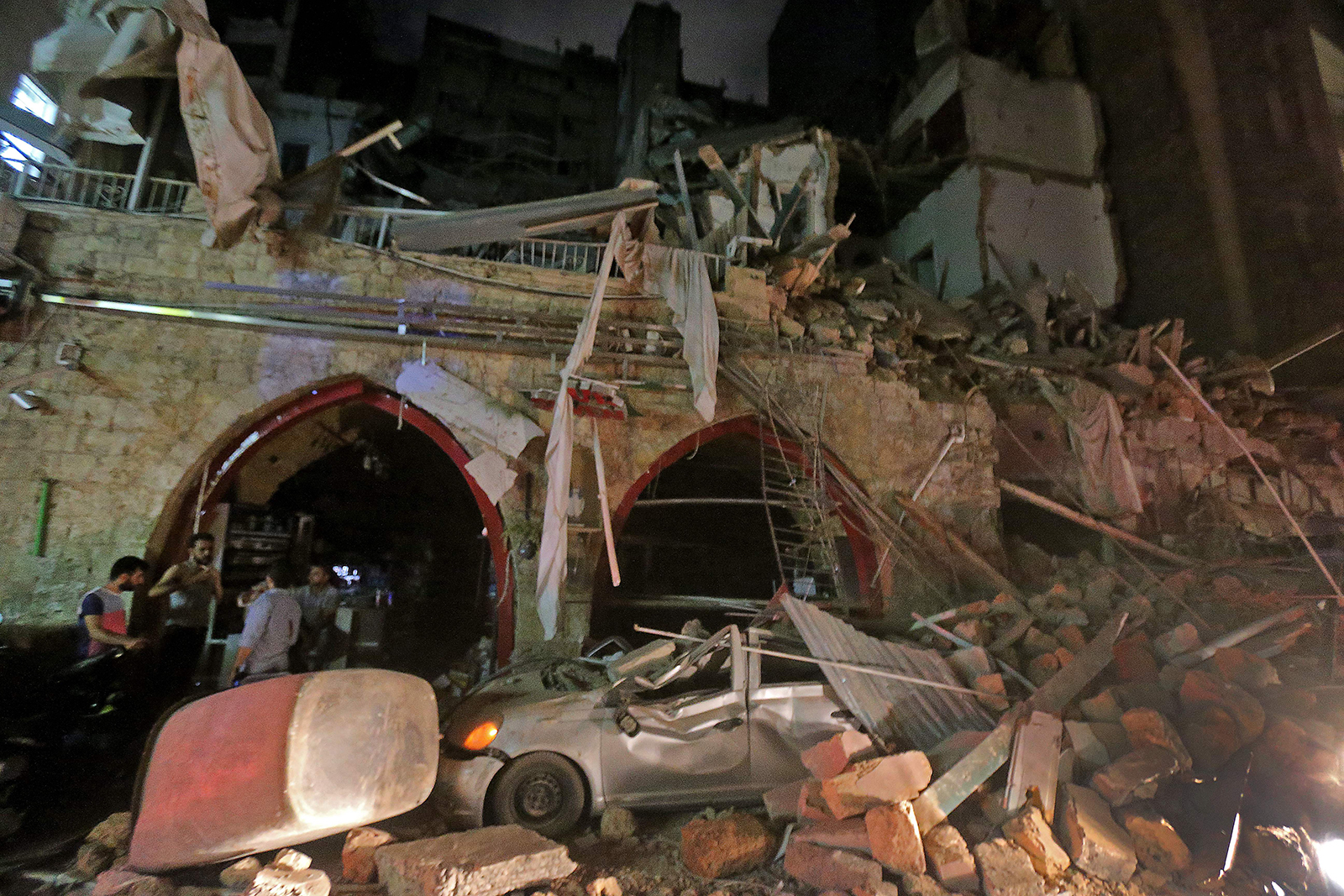Robert Baer, a former CIA operative with extensive experience in the Middle East, said videos of Tuesday's blast showed that while ammonium nitrate may have been present in the warehouse, he does not believe it was responsible for the massive explosion that ensued.
Initial reports blamed the blast on a major fire at a warehouse for firecrackers near the port, according to Lebanese state news agency NNA.
Lebanon's Prime Minister, Hassan Diab, later said that 2,750 metric tons of ammonium nitrate, a highly explosive material used in fertilizers and bombs, had been stored for six years at a port warehouse without safety measures, "endangering the safety of citizens," according to a statement.
Baer said he thinks that there were military munitions and propellants present. He speculated it could have been a weapons cache, but it's unclear who it belongs to.
"It was clearly a military explosive," he said. "It was not fertilizer like ammonium nitrate. I'm quite sure of that."
"You look at that orange ball (of fire), and it's clearly, like I said, a military explosive."
Baer noted that white powder seen in the videos of the incident before the major blast are likely an indicator that ammonium nitrate was present and burning. He also noticed a lot of munitions going off ahead of the larger explosion.
No evidence of an attack: Baer said while he believes the explosion does not look like solely ammonium nitrate, there's still no evidence that this was an attack. The government has blamed poor management and vowed to get to the bottom of it.
"It almost looks like an accident," he said. "It was incompetence, and maybe it was corruption, but the question is whether it was military explosives, who was it going to or why was it stored there?"
Baer isn't confident we'll ever know the truth.
"I've worked in Lebanon for years, and no one is going to want to admit they kept military explosives at the port. It's a stupid thing to do."
Investigation launched: Prime Minister Diab's account appeared to be backed by Lebanon's General Security chief Abbas Ibrahim, who said a "highly explosive material" had been confiscated years earlier and stored in the warehouse, just minutes' walk from Beirut's shopping and nightlife districts.
The Prime Minister has launched an investigation into the explosion, saying he "will not rest until we find those responsible for what happened, hold them accountable, and impose maximum punishment."
As yet, there is no clear evidence to suggest the source of the blast.


